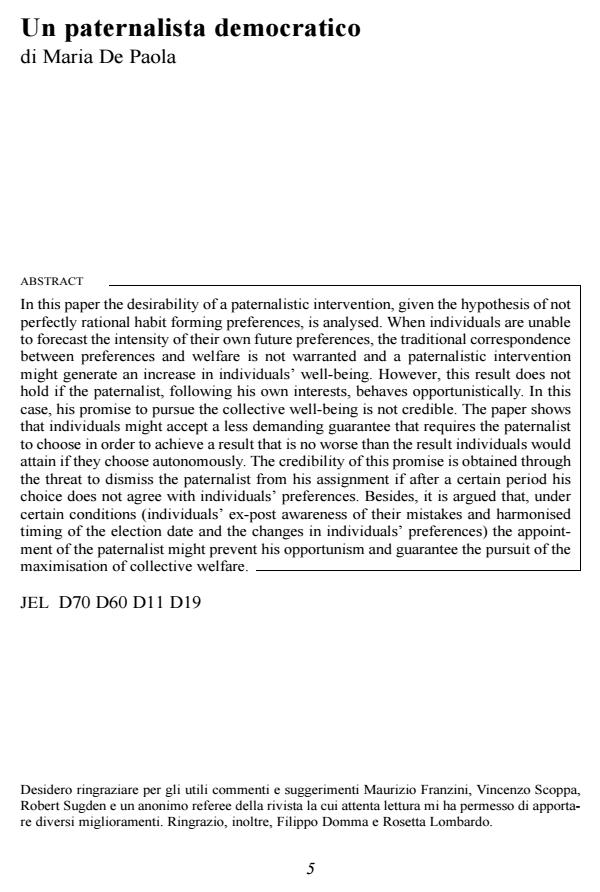Un paternalista democratico
Titolo Rivista ECONOMIA PUBBLICA
Autori/Curatori Maria De Paola
Anno di pubblicazione 2001 Fascicolo 2001/4
Lingua Italiano Numero pagine 29 P. Dimensione file 116 KB
DOI
Il DOI è il codice a barre della proprietà intellettuale: per saperne di più
clicca qui
Qui sotto puoi vedere in anteprima la prima pagina di questo articolo.
Se questo articolo ti interessa, lo puoi acquistare (e scaricare in formato pdf) seguendo le facili indicazioni per acquistare il download credit. Acquista Download Credits per scaricare questo Articolo in formato PDF

FrancoAngeli è membro della Publishers International Linking Association, Inc (PILA)associazione indipendente e non profit per facilitare (attraverso i servizi tecnologici implementati da CrossRef.org) l’accesso degli studiosi ai contenuti digitali nelle pubblicazioni professionali e scientifiche
In this paper the desirability of a paternalistic intervention, given the hypothesis of not perfectly rational habit forming preferences, is analysed. When individuals are unable to forecast the intensity of their own future preferences, the traditional correspondence between preferences and welfare is not warranted and a paternalistic intervention might generate an increase in individuals’ well-being. However, this result does not hold if the paternalist, following his own interests, behaves opportunistically. In this case, his promise to pursue the collective well-being is not credible. The paper shows that individuals might accept a less demanding guarantee that requires the paternalist to choose in order to achieve a result that is no worse than the result individuals would attain if they choose autonomously. The credibility of this promise is obtained through the threat to dismiss the paternalist from his assignment if after a certain period his choice does not agree with individuals’ preferences. Besides, it is argued that, under certain conditions (individuals’ ex-post awareness of their mistakes and harmonised timing of the election date and the changes in individuals’ preferences) the appointment of the paternalist might prevent his opportunism and guarantee the pursuit of the maximisation of collective welfare. JEL D70 D60 D11 D19
Maria De Paola, Un paternalista democratico in "ECONOMIA PUBBLICA " 4/2001, pp , DOI: